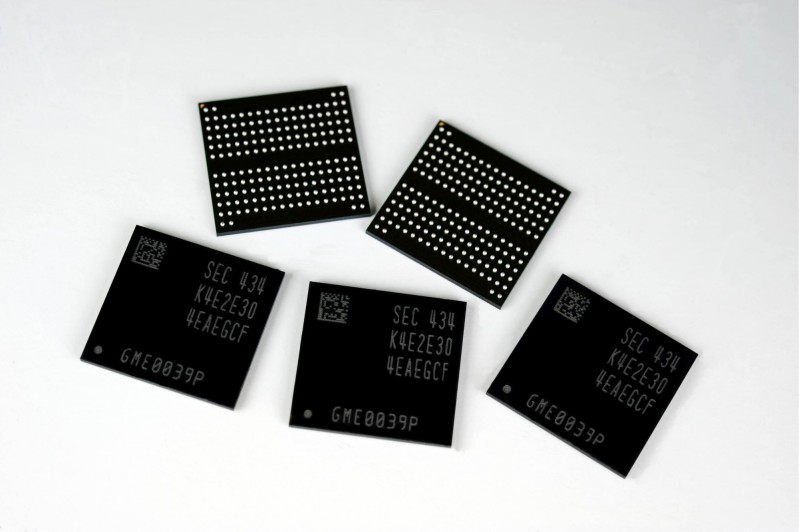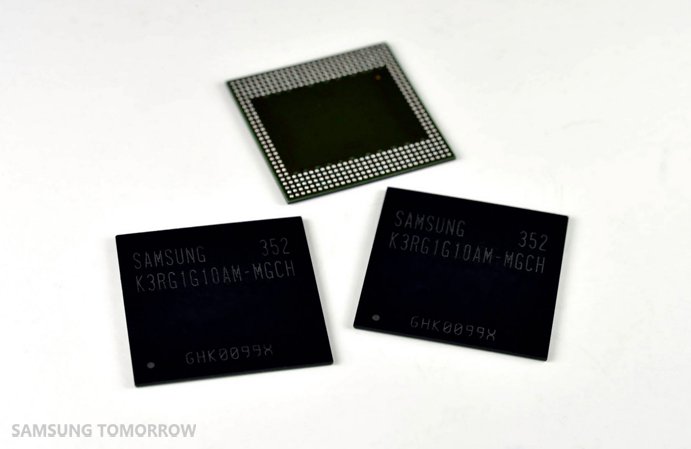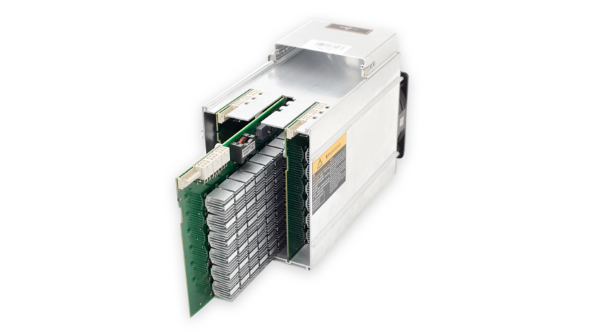Search result

Samsung has officially unveiled its next generation of chips at their Device Solutions America Headquarters and they are based on both 14nm, as well as 10nm processes. Now we know where all that investment into their semiconductor business went to. Additionally, they also unveiled their new generation of 7nm Extreme Ultraviolet Lithography (EUV) wafer that will allow for precise patterning on chips, without needing to opt for more than just a single pattern.
The 14LPU process will improve over the current gen 14nm chips by providing them with a boost in performance without exceeding the allotted power quota. Processors enabled by these new 14nm chips will be able to provide high performance for long stretches at a time. The 10LPU process on the other hand, will make the next gen chips smaller than its predecessors; the 10LPE and 10LLP chips. The boost in performance is not highlighted as significant, but they will be cheaper to manufacture and will provide better power efficiency when used inside the new processors. Will the new tech be introduced with the Snapdragon 830 (rumored to be produced by Samsung)? Or will we see them exclusively in the new generation of the Exynos processors? We will find out soon.
Saikat Kar (tech-enthusiast)

Samsung announced earlier today it has began mass producing its latest 6Gb LPDDR3 Mobile DRAM chips. They're made using the 20nm manufacturing process and are designed with high performance smartphones and tablets in mind by achieving data transfer rates of up to 2,133Mbps.

A 3GB LPDDR3 package can now be made using four 6Gb LPDDR3 chips is 20% smaller and consumes 10% less energy than existing 3GB packages such as the one found in the Galaxy Note 4. The 20nm process also results in 30% productivity gain compared to the 30nm process.

Samsung is truly a formidable giant in the tech world and this is definitely not confined to mobile devices. The Korean company makes a huge part of its profit from chip sales and buying silicon from Samsung is a pretty common practice in the business. Apple for one has had a long history of relying on the Korean company for its mobile CPU chips and paying heftily for them on an annual basis, despite all the rivalry and legal issues on consumer markets.
A new report from the Korean Times has come out today stating that Samsung has struck yet another major supply deal. This time it is for the LPDDR4 RAM module that the company created way back in 2013. This new memory standard is increasingly gaining popularity and has already appeared in LG's latest flagship device the LG G Flex 2. It is quickly becoming the norm and consequently LG has signed up to receive all of the aforementioned module it needs from Samsung.
The report also states that Samsung will manufacture 50% and perhaps even more of DDR4 modules for future Apple devices. As some of you surely remember, the Korean giant recently announced a new kind of memory module, dubbed ePoP, which stacks RAM and internal storage into a single chip. That technology is also sure to catch on quick and might even find its way into the iPhone 6s.

It wasn't too long ago that mining corporations had made gaming graphics cards super expensive and the rapid, meteoric rise of cryptocurrencies in general, and Bitcoin in particular had left entire nations confused regarding their blockchain policies. While things have calmed down since then, cryptocurrencies are going nowhere and Samsung is all ready to pounce onto the scene with some of their own in-house ASICs, aka application-specific integrated circuits.
Reports have come in to confirm that Samsung will be supplying their mining-specific chips to Squire, a company that manufactures crypto mining rigs in Canada. It is expected that the ASIC chips supplied by Samsung will make the machines much more productive for mining, while cutting down on the huge power requirements that they generally come with. While this makes the deal official, Squire did not declare anything about when they will start using the chips in their products. It would be interesting to see how the ASICs by Samsung fare against the ones manufactured by TSMC; a much more experienced company in the field.
Saikat Kar

This Year we will see the first DDR4-powered Smartphones. Starting with the LG G Flex 2 that was announced a few weeks ago with a 3GB DDR4 RAM chip. SK Hynix, which makes the 20nm 8 Gigabit LPDDR4 chip that is paired with Snapdragon 810 SoC in the G Flex 2, bragged about this crowning achievement, saying that DDR4 memory has double the throughput of DDR3, with smaller operating voltage and more power efficiency.
On March,1st we will add another DDR4-powered Smartphone to the list, Samsung Galaxy S6, which is expected to pack a 4GB / 3GB DDR4 RAM chipset. These two Smartphones will lead the market this year and we expect to see higher RAM sizes on Tablets and Smartphones released on the 2nd Half of this Year (4GB - 5GB). Let's wait and see...
© 2023 YouMobile Inc. All rights reserved





